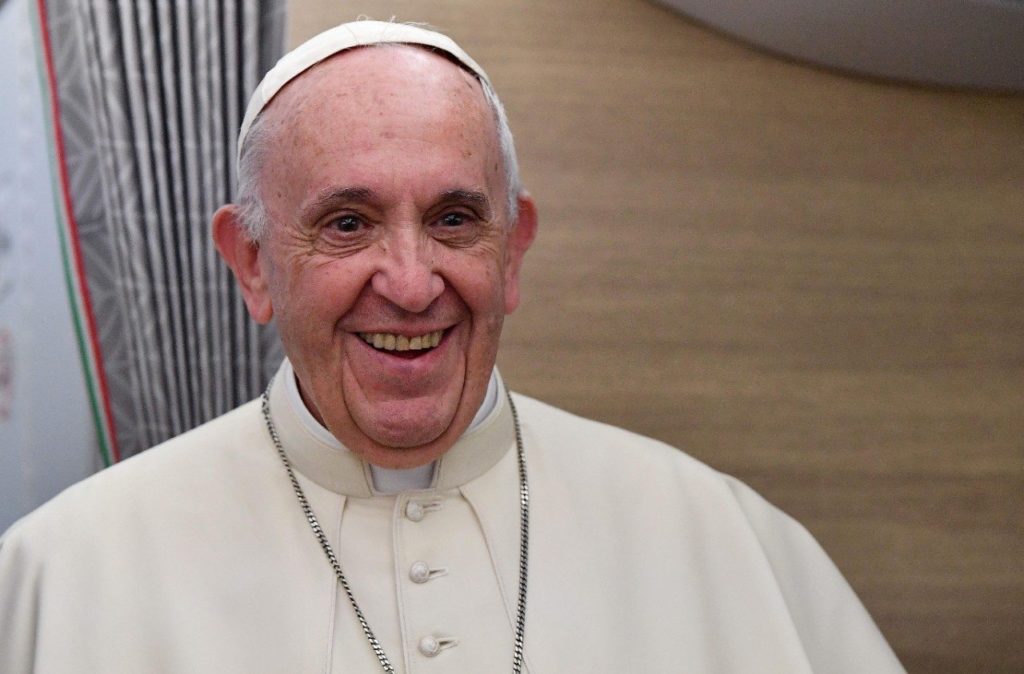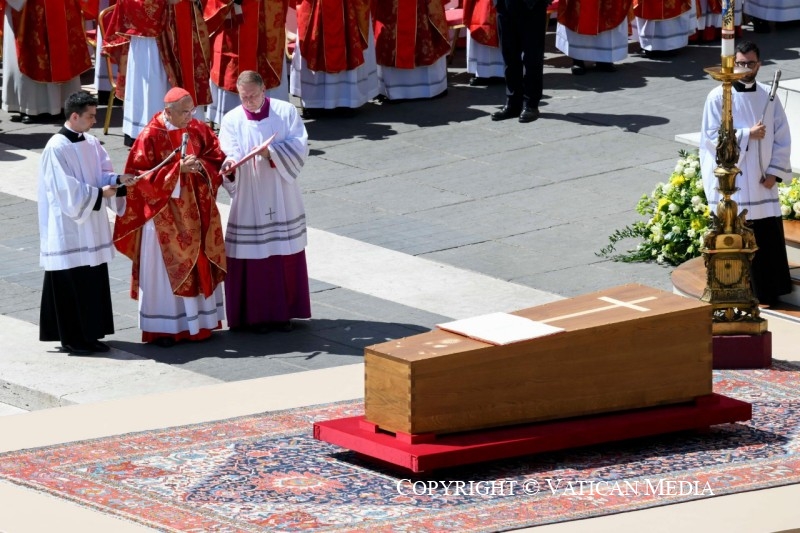Pope Promotes Book with Preface and Video
'Seek and Find the Will of God: Practical Guide to the Spiritual Exercises of Saint Ignatius of Loyola'

Pope Francis released a video on May 10, 2021, to introduce the book “Seek and Find the Will of God: Practical Guide to the Spiritual Exercises of Saint Ignatius of Loyola,” by Father Miguel Angel Fiorito, S.J.
The new volume, “Cercare e trovare la volontà di Dio” in Italia, has a preface by the Holy Father, who once was a student of Father Fiorito, who is known to have had a significant impact on the thinking of Francis.
The Holy Father also penned the preface to the collection of Father Fiorito’s work published in five volumes by La Civiltà Cattolicain 2019. And on December 13, of that year — the 50th anniversary of the Pope’s ordination to the priesthood — he visited the Jesuit community in Rome to present the collection.
Here is a translation of the text of the Video-Message that the Holy Father Francis sent, on the occasion of the presentation of the volume “Seek and Find the Will of God: Practical Guide to the Spiritual Exercises of Saint Ignatius of Loyola,” by Father Miguel Angel Fiorito, S.J., with a Preface by Pope Francis and published by Ancora, and which will be on the market from tomorrow, Tuesday, Mary 11.
* * *
The Holy Father’s Video-Message
“To help” is the key phrase of the brief Prologue with which Miguel Angel Fiorito introduces his book Seek and Find the Will of God. It’s a real and proper source to enter in the spirit of the Spiritual Exercises of Saint Ignatius. We, his disciples, called Fiorito “the teacher.” The helps he gave us were simple but necessary. This book reports them with a simple, or as we’d say today, interactive structure. I pause on some things that did me good, and that I hope they will do good to others.
Fiorito stresses twice the fact that his help is “up to a point.” This awareness and acceptance of his limitation speaks to us of his profound respect and trust in the freedom of the other. His help comes to a point in which the other, in his freedom, sincerely wants to let himself be helped.
Spiritual help is help to freedom. It is, therefore, a support guided by discreet charity that, without abusing the limits, is even able to find those “desires of desires” on which grace makes leverage. With this desire for desire, it is possible to help one who exercises himself in the spiritual life to take a step forward with courage and audacity.
The book is made up of forms of spiritual reading. Fiorito writes: “We have transformed into a “form of spiritual reading” all that has done us good in the authors that we quote, to help in some way the practice of the ‘month of Exercises.’”
What Fiorito calls “form of spiritual reading” is a literary genre all of his own; it is original. Fiorito often handed out mimeographed notes with blue ink. The argument addressed in these sheets had to fit on a horizontal sheet — sometimes almost without margins — so that the content could be read all in a row. They were brief, interesting, and always practical writings. In them he included texts of other authors, using them freely, commenting on them, and annotating them.
This “conversion” of a rich and composite material in manageable forms of reading is the fruit of a long endeavour of contemplation and discernment. What Ignatius calls “reflection to draw fruit” from what one has contemplated and has done one good, in Fiorito’s hands is transformed into a ruminated fruit and distributed in rations, thinking of what the one doing the Exercises can and must assimilate in every stage of the Exercises themselves.
Therefore, I warn the reader that this book is to be read and used in the same dynamic and with the same spirit in which it was written. So we are before a “modular” book, an open book “to help” one who gives and one who does the Exercises. Hence the importance of the indexes and the text of the Exercises that enrich this edition of Ancora publishers, which I thank here, edited by the Fathers of La Civilta Cattolica Review.
The teacher ends the Prologue highlighting that his practical commentary will be helpful to those that want to practice the Exercises, not limit themselves to studying them. The objective is to give oneself time to feel the motions of the Spirit, and seek concretely the Will of God through the “reform” of one’s life.
To this end, it seems interesting to me to underscore how the concept of “reform” — so fashionable currently — is enlarged and deepened. Reform, in the Exercises, is not found only in tension with what before was deformed. Reform is also to conform oneself to what is new, namely, to the Lord’s life, style, criteria and choices. The reform doesn’t have a functional character or one of self-perfection, but, rather, it’s geared to the mission. If we look at Saint Peter’s example, we see that every time he acknowledges himself a sinner, the Lord calls him immediately to follow Him, perfecting him not in everything, but in what is useful to be a fisher of men and to feed his sheep. The Lord will not ask Peter to reform all the defects he bears with him of his past life but invites him to come out of himself to proclaim the Gospel, a mission in which the past will be reformed in certain things and not so much in others.
According to the model of the Gospel, the interior focus and form of the Exercises, as Fiorito says, consist in the interior action of knowing — through discernment — “the Divine Will on relevant topics of our spiritual life.”
© Libreria Editrice Vatican
[Original text: Italian] [Translation by Virginia M. Forrester]
Related

Timothy Schmalz, the Pope’s Sculptor
Exaudi Staff
29 April, 2025
7 min

Cardinal Parolin at the Novendalia Mass: “Mercy leads us to the heart of faith”
Exaudi Staff
27 April, 2025
8 min

Pope Francis’ Tomb in Santa Maria Maggiore
Exaudi Staff
27 April, 2025
1 min

Mercy and the joy of the Gospel are two key concepts of Pope Francis
Exaudi Staff
26 April, 2025
9 min
 (EN)
(EN)
 (ES)
(ES)
 (IT)
(IT)

